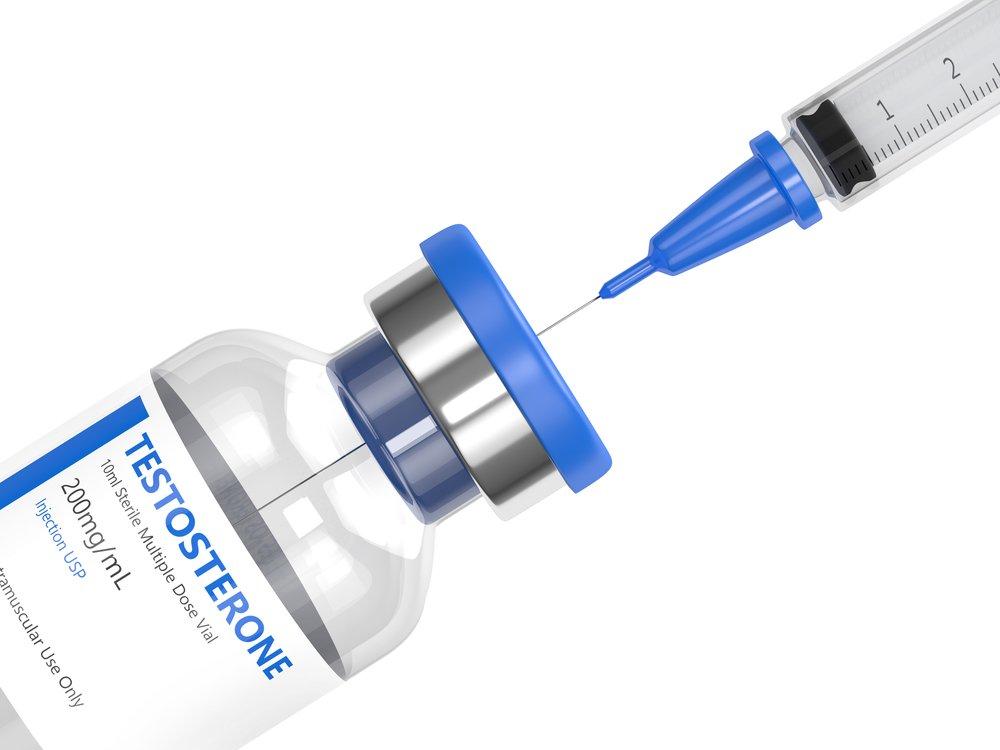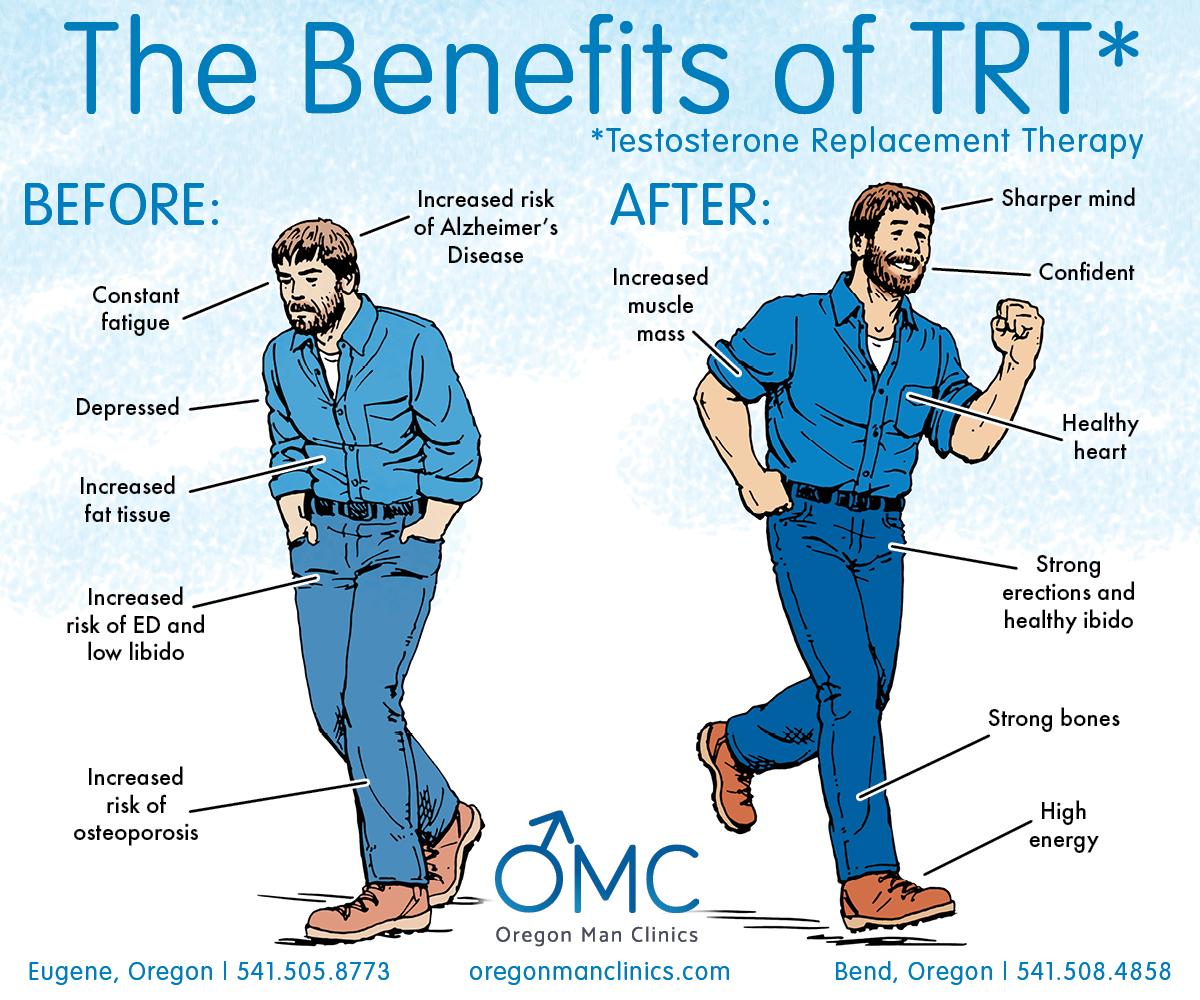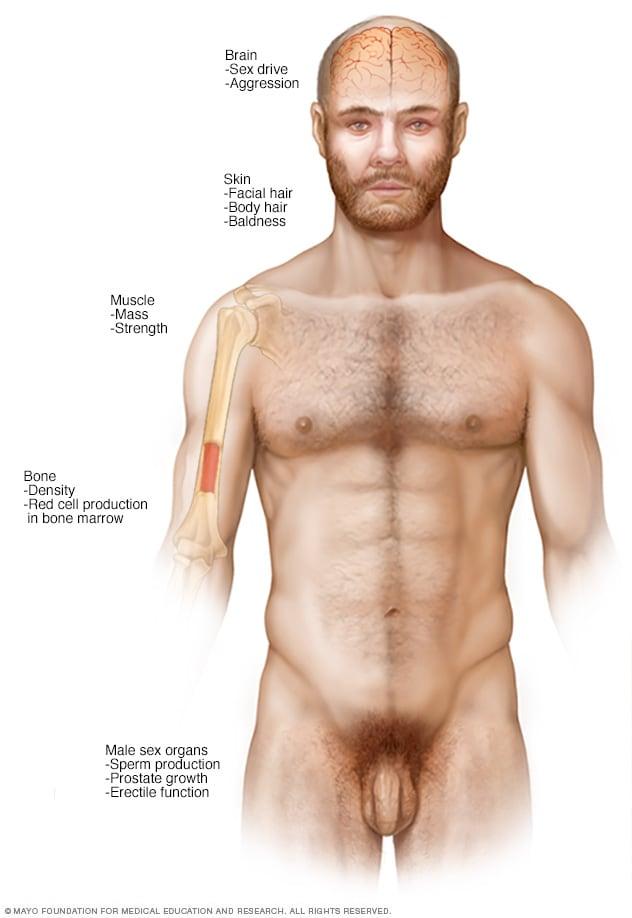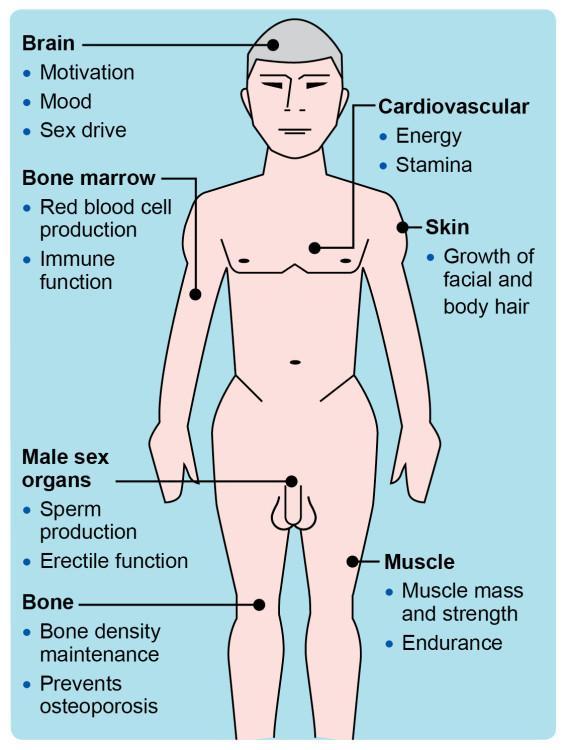In a world where distractions are just a click away, maintaining focus and concentration can feel like an elusive goal. Amidst the constant barrage of information and demands on our attention, many are turning to innovative solutions that promise clarity and mental acuity. One such avenue gaining attention is testosterone therapy—a treatment traditionally associated with physical vitality and overall well-being. Yet, emerging evidence suggests that testosterone may also play a pivotal role in sharpening our cognitive faculties. This article delves into the intriguing relationship between testosterone therapy and enhanced focus and concentration, exploring the science behind its effects, potential benefits, and considerations for those seeking to reclaim their mental edge in a fast-paced environment.
Understanding Testosterones Role in Cognitive Function
Testosterone, often recognized for its role in physical development and libido, also plays a crucial part in cognitive health. Studies have revealed that this hormone can significantly influence various aspects of mental performance. A deficiency in testosterone levels has been linked to cognitive decline, impacting areas such as memory, attention, and overall executive function. Individuals with lower levels of testosterone may experience difficulties in staying focused or maintaining their concentration over extended periods, leading to a reduced ability to process information efficiently.
Interestingly, research highlights that healthy testosterone levels are associated with enhanced neurotransmitter function and increased neuronal growth. This hormonal influence allows for improved synaptic plasticity, which is vital for learning and memory retention. Some studies suggest that testosterone therapy may help combat age-related cognitive decline by potentially improving focus and processing speed in older adults. As we explore testosterone’s influence on cognitive functions, it becomes essential to consider both physiological and psychological aspects to fully understand its implications for enhanced mental clarity and concentration.

The Science Behind Testosterone and Mental Clarity
Testosterone is often associated with physical attributes, but its role in cognitive function is equally significant. Research indicates that this hormone plays a vital role in the development and maintenance of neural networks in the brain. When testosterone levels are balanced, individuals often experience enhanced mental clarity and improved cognitive performance. Some key benefits include:
- Improved Memory: Testosterone contributes to the formation of new neural connections, which may enhance memory recall.
- Increased Focus: Balanced testosterone levels can elevate concentration, allowing for better task engagement.
- Reduced Mental Fatigue: Higher testosterone levels are linked to lower instances of mental fatigue, fostering a more alert and responsive mind.
Moreover, fluctuations in testosterone can impact mood and motivation, both of which are crucial for maintaining mental clarity. Men and women alike can experience cognitive decline when testosterone levels fall below optimal ranges. Various studies suggest that hormone therapy may be a beneficial approach to restoring balance, leading to improved executive functions such as decision-making and problem-solving. The following table summarizes some of the cognitive benefits related to testosterone therapy:
| Benefit | Description |
|---|---|
| Enhanced Learning | Facilitates better retention of information. |
| Improved Mood | Helps reduce symptoms of depression and anxiety. |
| Better Problem Solving | Enables more effective analytical thinking. |

Signs of Low Testosterone Affecting Focus and Concentration
Low testosterone levels can significantly impair cognitive functions, leading to challenges in both focus and concentration. Individuals may experience a range of symptoms, which can manifest in their daily activities. Some common indicators include:
- Difficulty concentrating: The inability to maintain attention on tasks, often resulting in forgetfulness.
- Increased mental fatigue: A sense of tiredness or burnout that affects mental clarity.
- Reduced motivation: Widespread apathy or disinterest in activities that were previously engaging.
- Mood fluctuations: Impacts such as irritability or depressive feelings can also cloud cognitive function.
Understanding these signs is vital for recognizing when low testosterone may be affecting one’s cognitive health. In many cases, these symptoms can be tracked and categorized into a couple of key areas that warrant attention. Below is a simple overview of how these signs may affect day-to-day life:
| Sign | Effect on Daily Life |
|---|---|
| Poor Focus | Difficulties completing projects or tasks efficiently. |
| Mental Fatigue | Increased time needed to accomplish simple tasks. |
| Low Motivation | Withdrawal from social interactions and professional responsibilities. |

Exploring the Benefits of Testosterone Therapy
Testosterone therapy has emerged as a potential game-changer for those seeking to enhance their cognitive functions, particularly in the realm of focus and concentration. The relationship between testosterone levels and cognitive capabilities is complex, yet numerous studies suggest that optimizing these hormone levels can lead to significant improvements in mental sharpness. By ensuring adequate testosterone levels, individuals may experience a reduction in brain fog and an increase in overall mental clarity.
The benefits of this therapy extend beyond mere cognitive enhancement, offering a range of potential advantages:
- Improved Memory: Enhanced recall and retention of information.
- Increased Mental Agility: Faster processing speeds during tasks and decision-making.
- Heightened Motivation: A boost in drive can aid in maintaining focus on tasks for longer periods.
- Better Mood Stability: This can lead to a more conducive environment for concentration.
To illustrate the positive impact of testosterone therapy on focus and cognitive performance, consider the following table comparing key cognitive metrics before and after therapy:
| Cognitive Metric | Before Therapy | After Therapy |
|---|---|---|
| Focus Duration (minutes) | 15 | 25 |
| Task Completion Rate (%) | 60 | 85 |
| Mood Stability Score (1-10) | 5 | 8 |
Choosing the Right Testosterone Therapy for Your Needs
When considering testosterone therapy as a means to enhance focus and concentration, it’s essential to take a personalized approach. Your individual health profile, lifestyle, and specific cognitive goals will influence the type of therapy that’s right for you. Consult with a qualified healthcare provider to explore options such as:
- Injectable Testosterone: Offers quick absorption and is often tailored for rapid results.
- Patches: Provide a steady release of testosterone through the skin, maintaining more consistent levels.
- Gels: Easy to apply and allow for flexible dosing based on daily needs.
- Pellets: Implanted under the skin for long-term delivery, minimizing the frequency of administration.
Your decision should also factor in potential side effects, monitoring requirements, and how each method may affect your focus and cognitive abilities. Keeping track of your progress and experiences with different therapies is crucial; maintaining open communication with your healthcare provider will ensure adjustments can be made as needed. A side-by-side comparison can aid in this process:
| Therapy Type | Onset of Action | Duration | Administration Frequency |
|---|---|---|---|
| Injectable | Quick | Varies | Weekly/Biweekly |
| Patches | Gradual | 24 hours | Daily |
| Gels | Moderate | 24 hours | Daily |
| Pellets | Gradual | 3-6 months | Every few months |
Addressing Myths and Misconceptions about Testosterone Treatment
Testosterone therapy is often surrounded by various myths that can cloud the understanding of its benefits and risks. One prevalent misconception is that testosterone treatment is solely for enhancing physical performance or bodybuilding. In reality, testosterone plays a crucial role in cognitive functions, including focus and concentration. Low levels of testosterone can lead to cognitive decline, making clarity of thought difficult. It’s essential to recognize that testosterone therapy is not merely a tool for athletes but can be a legitimate treatment option for individuals facing cognitive challenges linked to hormonal imbalances.
Another common myth is that undergoing testosterone therapy will lead to aggressive behavior or mood swings. While hormonal treatments can influence moods, these effects are often exaggerated. Proper management under a healthcare provider’s supervision ensures that testosterone levels remain balanced, minimizing the risk of negative emotional side effects. Here are some key points to consider:
- Individualized Treatment: Dosing is tailored to each person’s needs.
- Monitoring: Regular assessments ensure optimal hormone levels.
- Life Quality Improvement: Many report enhanced well-being with proper therapy.
Lifestyle Changes to Enhance the Effects of Testosterone Therapy
Integrating certain lifestyle changes can significantly amplify the benefits of testosterone therapy, particularly in enhancing focus and concentration. Exercise is one of the most impactful adjustments; regular physical activity not only boosts testosterone levels naturally but also improves cognitive function. Aim for a mix of aerobic exercises, like running or cycling, and strength training, which can lead to better brain health. Additionally, ensuring a balanced diet rich in nutrients can provide essential support for hormonal balance. Incorporate foods high in healthy fats, proteins, and antioxidants. Some beneficial options include:
- Avocados - Rich in healthy fats that support hormone production.
- Spinach – Packed with magnesium, which may aid testosterone levels.
- Eggs – A great source of protein and cholesterol, crucial for hormone synthesis.
Beyond diet and exercise, sleep quality plays a crucial role in testosterone levels and cognitive function. Aim for 7-9 hours of restorative sleep each night to foster a healthy hormonal environment conducive to focus. Likewise, stress management is paramount; chronic stress can lead to hormone imbalance. Practices such as yoga, meditation, and mindfulness can help mitigate stress levels and elevate your overall well-being. Consider adopting some of these effective habits:
| Habit | Benefits |
|---|---|
| Regular Exercise | Boosts testosterone and enhances cognitive performance |
| Balanced Diet | Supplies nutrients necessary for hormone regulation |
| Quality Sleep | Improves recovery and cognitive function |
| Stress Management | Helps maintain hormonal balance and improves focus |
Q&A
Q&A: Exploring Testosterone Therapy for Focus and Concentration
Q: What is testosterone therapy, and how does it relate to focus and concentration?
A: Testosterone therapy involves administering testosterone (a hormone predominantly produced in the testicles in men and in smaller amounts in women) to alleviate symptoms of low testosterone levels. While traditionally associated with physical strength and libido, emerging research suggests that testosterone may also play a role in cognitive functions, including focus and concentration.
Q: Who might consider testosterone therapy for these cognitive issues?
A: Individuals experiencing symptoms of low testosterone—such as fatigue, depression, and decreased cognitive function—might find testosterone therapy beneficial. This is particularly relevant for middle-aged and older men, as natural testosterone levels tend to decline with age. However, it’s important for anyone considering this treatment to consult with a healthcare provider to assess their specific needs and health conditions.
Q: What evidence supports the use of testosterone therapy for improving focus and concentration?
A: Some studies indicate that testosterone can enhance cognitive functions, particularly in areas related to attention and memory. Research has shown that men with higher testosterone levels may perform better on tasks requiring mental sharpness. Still, while there’s promising evidence, more large-scale and longitudinal studies are necessary to fully understand the effects of testosterone on cognitive abilities.
Q: Are there any risks associated with testosterone therapy?
A: Yes, testosterone therapy is not without risks. Potential side effects can include mood swings, sleep apnea, and an increased risk of cardiovascular issues. Additionally, there’s a possibility of testosterone therapy affecting fertility. Therefore, a thorough evaluation and discussion of potential benefits and risks with a healthcare professional is crucial before starting therapy.
Q: How long does it typically take to notice the effects of testosterone therapy on focus and concentration?
A: The timeline can vary significantly between individuals. Some may begin to notice improvements within a few weeks, while others might take several months to experience the full benefits. It is essential to maintain ongoing communication with a healthcare provider to monitor progress and make any necessary adjustments to the treatment plan.
Q: Are there alternative methods to improve focus and concentration besides testosterone therapy?
A: Absolutely! Several lifestyle changes can enhance cognitive function, including regular physical activity, a balanced diet, sufficient sleep, and mindfulness practices. Cognitive training exercises and engaging in new learning opportunities can also promote better focus and concentration. It’s worthwhile to explore these options, perhaps in conjunction with any hormonal therapies, to achieve the best overall results.
Q: What should someone do if they suspect they have low testosterone affecting their cognitive abilities?
A: The first step is to consult with a healthcare professional who can conduct a thorough evaluation. This typically includes a physical exam, review of medical history, and blood tests to determine testosterone levels. From there, discussing potential treatment options, including lifestyle changes or testosterone therapy, can help to address any cognitive concerns effectively.
Q: Is testosterone therapy a one-size-fits-all solution for cognitive challenges?
A: Not at all. Testosterone therapy should be personalized, considering each individual’s unique situation, health status, and cognitive challenges. What works for one person may not work for another, making it essential to tailor the approach based on thorough assessments and ongoing monitoring.
In Conclusion
As we navigate the complexities of modern life, maintaining focus and concentration is more critical than ever. The exploration of testosterone therapy as a potential avenue for enhancing cognitive clarity sheds light on an often-ignored aspect of hormonal health. While the benefits may be promising, it is essential to approach this therapy with caution and an informed perspective—recognizing that individual experiences can vary widely.
As research continues to unfold, bridging the gaps between hormone levels and mental acuity, it is vital for individuals to consult with healthcare professionals before embarking on any new treatment journey. The path to improved focus and cognitive performance is unique for each person, and understanding your body’s signals is the first step in this ongoing quest for clarity.
whether through hormonal support, lifestyle adjustments, or holistic practices, the goal remains the same: to harness our mind’s potential and navigate the world with sharper insight and unwavering concentration.










